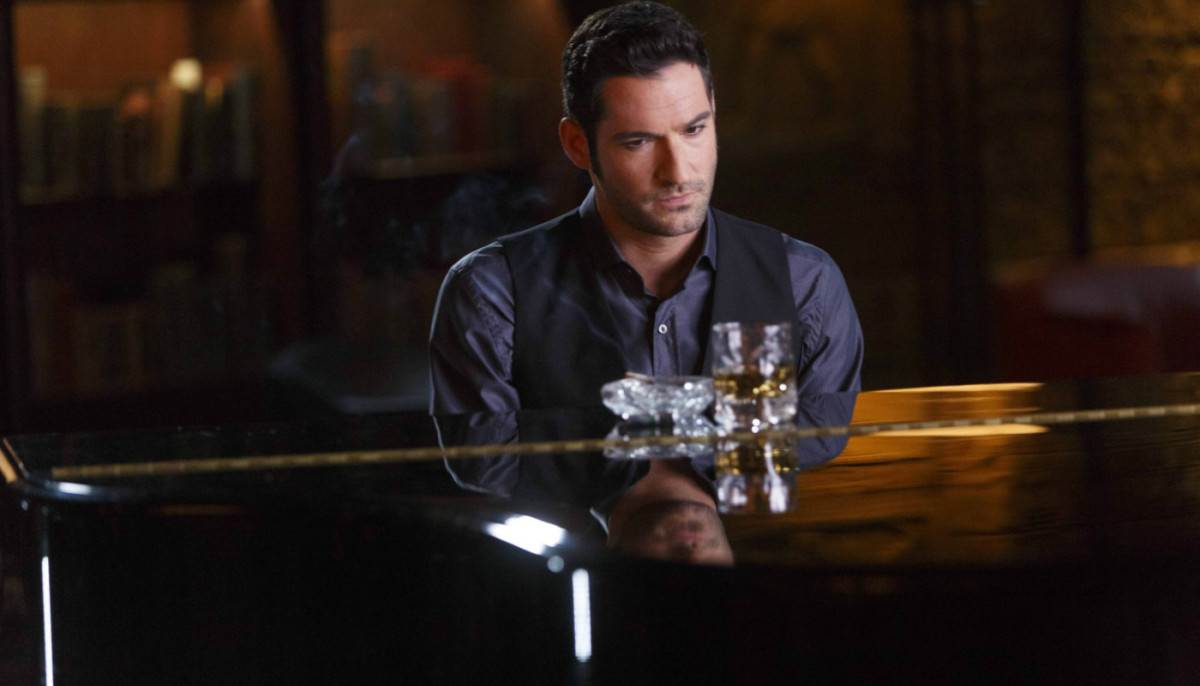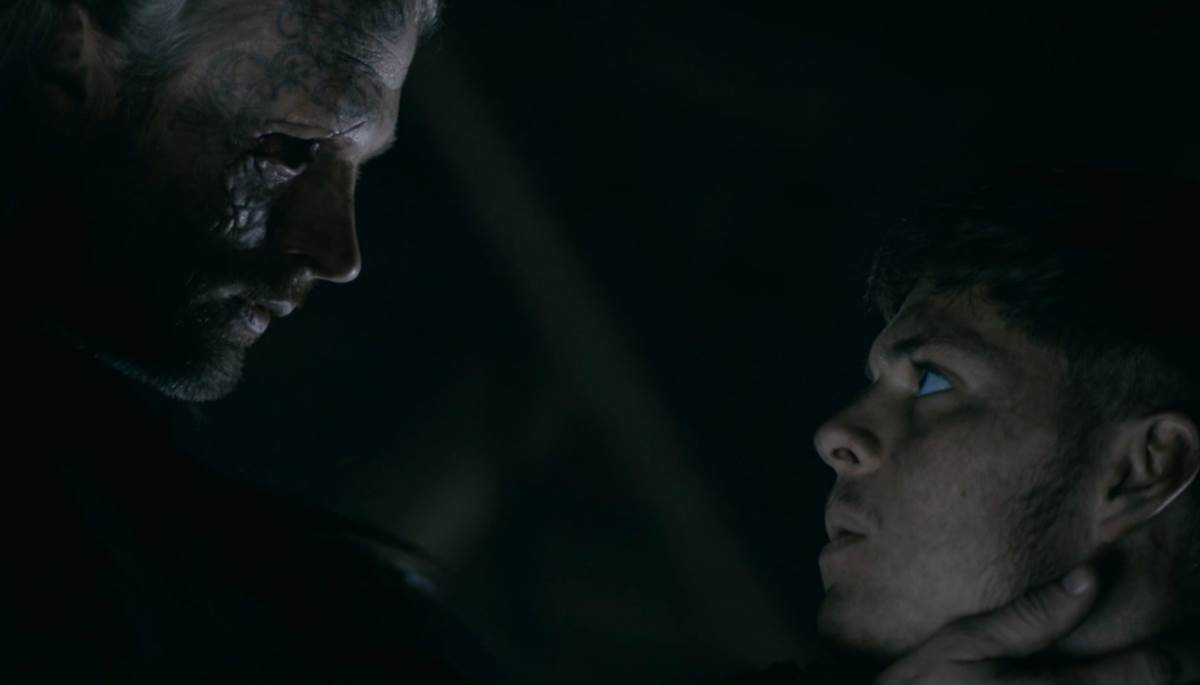Movies News
Michel Hazanavicius, Director of ‘The Artist’: ‘These are the Rules of the Game; If You Want to Play, You’ll Stay’

It has been a big first few days of theatrical release for ‘The Artist,’ and things could get even bigger. The film is among the serious contenders for Best Picture, Best Actor and Best Director at the New York Film Critics Circle (voting happens on Tuesday morning at 9:30 a.m. EST), an Oscar precursor with a historically-significant Academy Awards impact. Couple that with what old-school Variety would call boffo box office in limited release (‘The Artist’ has earned $ 210,000 on four screens since Friday), and the French import — brought to America by Harvey Weinstein — is well on its way to becoming one of the most talked about releases of year. Which, as you know by now, is ironic because the film is silent.
Brought to life onscreen by Jean Dujardin and Berenice Bejo — as well as Uggie the dog — ‘The Artist’ is the product of Michel Hazanavicius’s imagination. The 44-year-old wrote and directed ‘The Artist,’ though even he wasn’t sold on the idea of making a silent movie in 2011. Moviefone caught up with the possible Best Director nominee at the Director’s Guild of America theater in New York earlier this month to discuss the winning new film, the lengths Hazanavicius had to go to get ‘The Artist’ made and why Steve McQueen would have made a poor silent film star.
Are you getting tired of people telling you how much they loved your movie?
I see that people are enjoying the movie and it’s very touching for me. It’s a nice story because I know where it comes from. It was not so easy to do — to put things together — to be able to make it. It’s so out of the market. The financial people didn’t want to do it. Now when I see people enjoy the movie it’s like — how can I say that? — obvious that someone had to make this movie. But it was not so obvious. [Laughs]
So, how difficult was it to make this movie?
The first person I had to convince was myself. Because you don’t usually do this kind of thing. So, I think I had to feel confident enough in myself to say this was the next one. The next movie will be this one. To be convinced enough to convince other people. I guess the two ‘OSS 117’ movies — the two movies I made before — which were successes in France, gave me the confidence, but, also, in a way, the power to try to make this. I could do nothing without the producer, Thomas Langmann, who really did a great job and who really allowed me — permitted me — to make the movie. He’s been very supportive — he gave me this confidence and also put some of his own money in the project. In a way in it was crazy, but it was good craziness. Panache. Do you say panache?
We do. Panache. I’m sure I say it wrong, but we do.
Yeah, yeah! Panache. He has some panache. When things start to become real, that’s when the people come and the movie gathers momentum. After that, it’s easier. It’s easier to find the actors because the actors dream of doing a movie like that. They work — they accept to work for cheap; they know I’m not doing a blockbuster. But it’s a good challenge for an actor to do this type of film. For a technician. A cinematography. A production designer. The only thing is to get it started.
Did you collaborate with Jean and Berenice very much on the script?
I wrote the script with him and Berenice in mind. Both of them. They knew I was writing it for them. Actually, Berenice is my wife, so, we live together, and she was involved in the process. She came with me to the cinematheque to the screenings of silent movies. She read all the books I read. She was very close. Jean was not too close. Because he’s not my wife. We’re friends, but he was a little bit further away from the process. I told him, “This is what I’m writing with you in mind. This is the story.” But I always told him, feel very comfortable, because if you don’t want to do it, don’t feel obliged to accept because we’re friends. When I was looking for the money, I would say to the financials, “Jean will read.” Because he’s a huge star in France. All the directors want to do their movies with him. So, I could not say he would be the star of my movie. So, I said to the financials, “He’s going to read. Today he likes it, but we never know.” But, he discovered the script when it was finished.
Both Jean and Berenice give such natural performances, which seems incredibly difficult to achieve in this medium. Did you have to change your directing style at all to produce these great silent performances?
To me, the real difference is in the script. If you try to make a silent movie with a normal script and you just pull out the dialogue, you will have big problems with the actors because you will ask them to tell a story that you don’t know. Because it’s told by the dialogue. So, it’s all in the writing. It’s how you write a sequence with images. The writing was really pre-directing. You’re writing pages that make the story readable for everyone. Accessable for everyone.
How do you make it accessible to the actors?
The codes of acting in the silent era are not because of the silent format. They are because of the ’20s. The codes of acting of the ’20s are very different from the codes of today. They are also different from the codes of acting from the ’50s or ’40s. To actually compare the codes of acting from the last four years of the silent era, it’s very close to the codes of acting from the early ’30s. It’s not about the format. It’s about the period itself. So I really tried to write a story that allowed them to be natural and to act the way they know how to act. The way you usually act. I believe all the actors are great. They were a little bit afraid, most of them, when I would ask them to ape the codes of the ’20s. It was really [like parody]; Jean does it in the movies within the movie — he really plays it up. It’s funny. And it’s done to be funny. But when he’s out of the movies he has a very natural way. What I did was I shot the movie in 22 frames per second, so that gives a small acceleration — this little high speed — that gives the flavor of the ’20s, in a way. What’s important for an actor is to embody the character. To respect the situation. That’s what I asked of them.
It’s easier for me with the two actors, because I wrote the script with them in mind. The characters, in a way, are projections of what I want to see of them. How I would like to see them onscreen. You have to cast actors who are expressive. There’s a lot of wonderful actors that are stone-faced. They just tell the lines. I don’t know, maybe Steve McQueen was a little bit like that. Like a poker player.
Stoic.
Exactly. He’s a wonderful actor, but if he would have done a silent movie it would have been an exercise. For other actors — like John Goodman, for example, he’s so expressive. You really can read on his face and body — that’s the way he acts.
You mention how the film is not parody — and it’s not. But that seems it would be a very difficult tightrope to walk. How did you manage to keep things straight?
There’s some room in the movie for that kind of joke. But, for me, the most difficult thing in that movie was not doing a silent movie — because I really wanted to do it; it was a deep desire. What was really difficult was to not be ironic. Very soon when I was writing — once again, it’s all about the script — I realized very quickly if I started to be ironic, that makes the movie have a certain energy, which means I have to be funny all the time. Because we don’t really care about the story and we don’t really care about the characters. If you don’t really care about that, you want to laugh. Like in the ‘OSS’ movies, for example. If you want a real comedy with no dialogue, I cannot do it. It’s too challenging for me. I need dialogue to cover for 90 minutes. It’s very difficult to be funny with just slapstick. Actually, I watched a lot of silent movies, and all the ones that aged well are melodramas. Or romances. In structure. They really aged very well. All the Charlie Chaplin movies — which are masterpieces — they are all melodramas. Even though there are some very funny sequences, they are all melodramas. So, yeah: it was really a decision during the writing process.
I have to ask you about the music, which is just wonderful. It’s hard to imagine the film working without the score. Did you commission the music first?
The music doesn’t tell the story. If you just listen to the soundtrack the story is not told. But it gives you the actual path. And it helps you to go through the story. The way I worked was, when I started the script I was listening to all the great scores of the Hollywood classic era. Bernard Herrmann, Max Steiner, Leonard Bernstein, Alfred Newman. All these wonderful composers. It helped me to submerge in that atmosphere. Very quickly, I gave all those records to the composer, Ludovic Bource, he’s the one I have worked with since my first movie. I told him to try to see the movies, which are not silent movies, because except for a few, we don’t have music for silent movies. I asked him to watch the movies to understand how it works and to listen to the orchestration and to study the specific Hollywood sound. When I was on set, I was playing that music for the actors to set the mood of the sequence. When I came back to the edit bay, I gave all these little notes to the composer. “For this sequence I played that. For that sequence I played that.” I kept the structure of the movie with the music. The composer did a really great job. He had to deal with the reference of the classical composers, the structures that I gave to him, which was very precise, and his own sensibility, because he’s an artist. He had to mix everything in a short time and he really did a great, great job.
You use the iconic Bernard Herrmann love theme from ‘Vertigo.’ Was there any worry on your part about using a musical piece that is so iconic and instantly recognizable?
It was a dilemma for me. I really feel like the music has been done to death. That’s actually not the one that’s in ‘Vertigo.’ It’s another orchestration made by Elmer Bernstein in the ’70s. So, it’s a very specific one. But, it was a dilemma because I knew it was something — not blasphemy — but something that could hurt people. I think it’s so perfect, but, also, it makes sense for the movie. There’s the entire breakfast sequence which is really from ‘Citizen Kane.’ I have some other citations — musical citations from ‘Citizen Kane’ or ‘Sunset Boulevard.’ There’s also a line in the movie that’s an homage or tribute, not only to the silent era, but also to the classical Hollywood era. In a way [the ‘Vertigo’ score] makes sense. Not to the story of ‘Vertigo’ — some people told me, “Yeah, but it makes sense, because ‘Vertigo’ he wants to bring her back to life.” It was — I’m not so poetic. It was just the sensuality of the music was just so good for the sequence.
You also get the best dog performance I’ve ever seen from a dog with Uggie. I usually hate dogs in movies, but it’s hard to imagine ‘The Artist’ without that Jack Russell terrier.
I’m not sure I realized exactly why it was so important. I think I realized after. In my idea, it was more a visual thing. To change the character. The character is not just a man, he’s a man with a dog. It’s really period. It’s like ‘The Adventures Tintin.’ That’s the type of thing they used to do. Also, I think maybe, you can’t hate someone with a dog. In a way, someone beloved by a dog is a good person. But actually it’s real — when you work on the script and when you work on the character — you don’t just do a character. The character exists with the other ones. The other ones are facing the same problem and they resolve it in another way. I think this character, Uggie, is very important. He’s the only other character that doesn’t speak, because he’s a dog. But, it’s his best friend. I think it’s really on a deep level, but I think it makes sense. Usually, I guess, that animals in movies are gimmicks, but I think this one makes sense. It fits to the mood of the movie. To the atmosphere of the movie.
You have a dream sequence in the middle of the film that introduces sound for the first time. It’s a bit jarring. Why did you do decide to include that?
Actually, it was an option of the script. Of the original script. At one point, in the very beginning, to tell the story of a silent actor [at the dawn of talkies], sound comes into the movie — from small to small and big to big. Building and building. But I realized I couldn’t handle that for 90 minutes, for one. Also, the way I see things in the movie, the first 15 minutes are a promise to the audience. You say to the audience, “These are the rules of the game. If you want to play, you stay. If you don’t like it, you can leave.” People are going to believe in a T-Rex, because in the first 15 minutes, you told us, “These are the rules of the game.” You agree or you don’t. Here, I was doing a silent movie and 15 minutes later the movie was not silent anymore. So, I lost that idea, but I liked that idea. So I kept the one segment. Which is something I hate to do — hate to see, usually — a dream sequence. I really don’t like them, but I finally decided to do it because I liked the sequence. It may be one of the worst cliches in the world — the guy wakes up from a dream sequence — but i do some cliches in the movie, so I accepted it.
[Photo: TWC]
Follow Moviefone on Twitter
Like Moviefone on Facebook
You may like
-


‘Becoming Cousteau’ Director Explains How Explorer Went From
-


‘Shang-Chi’ Star Tony Leung: I Play a ‘Sociopath’
-


How ‘Spin’ Director Manjari Makijany Channeled Her History
-


‘Escape Room 2’ Director Explains That Crazy Twist Ending
-


‘The Tomorrow War’ Director Chris McKay on Changing the Last
-


The ‘Guardians of the Galaxy’ Game Trailer Really Wants to
Gary Marsh to Exit as Disney Branded Television President,
‘The Many Saints of Newark’ Magical and Burdensome, Reviews



‘Shang-Chi’ Adds $21 Million as Box Office Slows Down



‘The Eyes of Tammy Faye,’ ‘The Card Counter’ Revive Indie



‘Trust Me, You Don’t Want This’
Trending
-



 Movies News4 years ago
Movies News4 years agoVenom struggle scene footage with out CGI is sure to make you giggle
-



 Celebrities8 years ago
Celebrities8 years agoTV Query: Can ‘Lucifer’s’ Tom Ellis play the piano in real life?
-



 Movies News8 years ago
Movies News8 years agoAubrey O'Day Reveals Pauly D Has His Penis Pierced: ''We've Been Having Rea…
-



 Celebrities7 years ago
Celebrities7 years ago‘Vikings’: Who’s the man with one eye? We know the answer
